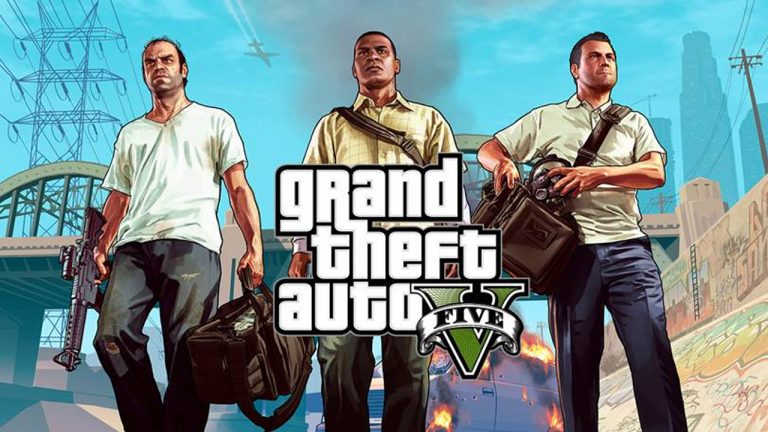Quote Shakespeare all you want, a name is pretty important thing, especially when it comes to creative works like novels, films, song, and video games. These are iconic indicators that stick with people to define a piece work, separating themselves from a mess of words that surround them. When I say a titles like Grapes of Wrath, Hey Jude, or The Sopranos it triggers an image. Whether it is of the physical product, a memory with the material, or an associated connection these names stand out whether you have a direct connect with the work or not.
With video games, titles have become something of a lost art. These days, people state the name of a franchise (sometimes with numbesr attached to it), slap a catchy phrase on the end of it, and sandwich a colon in between. Sequel-itis is something that games have suffered with for an entire generation, if not longer. People often cite “franchise fatigue” as a common ailment, exemplified by such series as Assassin’s Creed, Guitar Hero, or Call of Duty.
On one hand, sequels exist because of the society we live in. Entertainment is expensive and people want to pick their battles carefully. Why would you pick up a title mired by uncertainty, when you can buy the next chapter in a saga you already know you enjoy? Hopefully this year you branched out and played games like Gone Home, Guacamelee, State of Decay, or Brother: A Tale of Two Sons. But more likely you were among the masses who bought Tomb Raider, BioShock Infinite, and Grand Theft Auto V. There’s nothing wrong with any of the three aforementioned games, but they all were greenlit with the idea of continuing a successful franchise. While you might become weary of sequels, we consumers are often part of the problem.
So does that mean that video games suffer due to the myriad of sequels constantly being popped out to stuff another leg under a franchise tent? Not necessarily. While video games might put out more sequels, they also benefit from allowing more variance title to title. Games like Uncharted or Assassin’s Creed hit their stride with a sequel, where a developer was able to use feedback and experience to perfect mechanics.
Idea of perfected sequels does not come without its contrarians, but the game Mass Effect is a perfect example of a franchise finding its stride in a sequel. While the original Mass Effect had plenty of fans, it clung a little bit too closely to BioWare’s hardcore-RPG roots. The combat was clunky, the sci-fi was a little high brow, while the game has plenty of fans who will claim it is the best in the trilogy, the game found a widespread love with its sequel. Mass Effect 2 was a little grittier than it’s predecessor, more edgy. Mass Effect 2 twisted Mass Effect’s formula to be more of an action-RPG and BioWare has never looked back.
The Oxford Dictionary states that sequel is defined by, “A published broadcast, or recorded work that continues the story or develops the theme of an earlier one.” This is where video games really get interesting. Game series like The Elder Scrolls, Far Cry, or Final Fantasy are only linked by a theme, or ongoing lore in the case of Elder Scrolls.
The oddest of these throughlines would be that of Far Cry, the first-person shooter-adventure series that started with a science fiction twist, shoveling the player through levels of baddies with a douchey hero and weak plot. In between Far Cry and Far Cry 2 the franchise was purchased by Ubisoft who gave it a realistic spin, setting the game in the heart of civil war Central Africa. No scientific formulas or super monsters appeared in the game, as malaria and malitia are the main opponents. The third entry in the series touched based with the original Far Cry, providing an island setting and some gently applied fantastical elements. There are common themes to the Far Cry series but they could be their own individual title, as the story lines barely connect.
Even games that are based on pre-existing material, like Batman or Star Wars can find a way to be drastically different from each other and their material. Rocksteady’s Arkham series combined elements from Nolan’s gritty films, the beloved animated series, and even Burton’s iconic films. However, Rocksteady really succeeded in giving people a Batman they had never played before. Arkham Asylum was the first game to capture the nature of Batman’s hand-to-hand combat, countering attacks and using the shadows to hide. Arkham City took this one step further by giving players the feeling of leaping off rooftops and flying through the night. Departing from the Arkham formula is the LEGO Batman franchise, that gave the Dark Knight a tinch of humor and different suits with which to puzzle through the game. Star Wars has an even more widely diverse catalogue, spreading from real-time strategy games, to flying games, to RPGs.
No medium treats intellectual property quite like video games, where the rights to franchises are exchanged like currency. Names like Halo, Gears of War, Uncharted, and Assassin’s Creed are incredibly valuable and will live for ages. Other titles like Shadowrun or Syndicate might mean something completely different if the titles change publishing hands or are reinvented in the coming generations. Once upon a time, Grand Theft Auto was associated with a top-down driving game, hardly the third-person action games they are known as today. So what is really in a name for video games? While we might think that it means a lot, it really doesn’t.


0 Comments